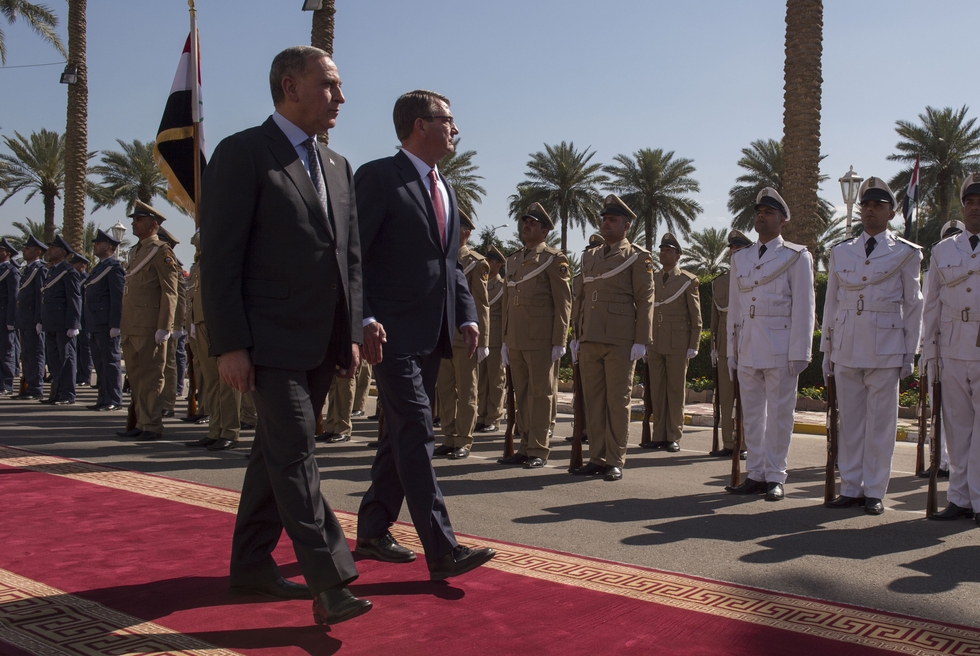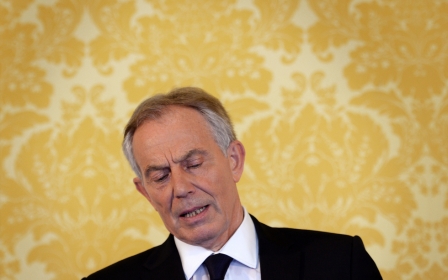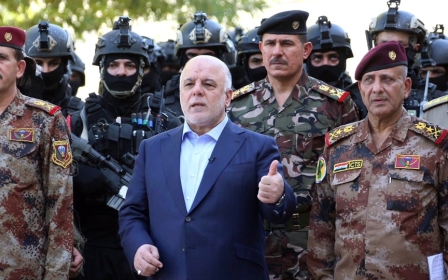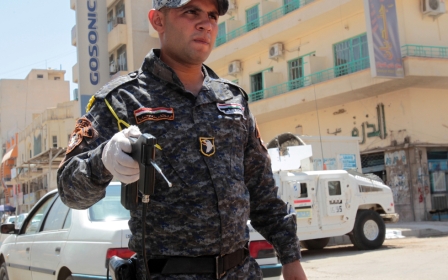Pentagon chief in Baghdad for talks on IS fight

Pentagon chief Ashton Carter arrived in Baghdad on Monday for talks with Prime Minister Haider al-Abadi on the fight against the Islamic State (IS) and plans to recapture Mosul from the militant group.
Carter's unannounced visit - his fourth to Iraq since beginning his job in February 2015 - comes two days after Iraqi forces captured an airbase to the south of Mosul that is seen as an important step toward the eventual battle for the country's second city, which has been under IS control since June 2014.
More than two years after IS overran large parts of Iraq as well as territory in neighbouring Syria, Carter wants to highlight successes, even as IS has fought back with devastating attacks in Iraq and abroad.
"What I'll be discussing with Prime Minister Abadi and our commanders there are the next plays in the campaign, which involve the collapse and control over Mosul," Carter told reporters aboard a military plane ahead of his visit.
The ultimate goal, he added, was "the recapture of all of Iraqi territory by the Iraqi security forces, but of course Mosul is the biggest part of that".
The Qayyarah airbase, which Abadi announced Saturday had been recaptured, is located 60 kilometres (35 miles) south of Mosul and can serve as a launchpad for future operations to recapture the city.
US defence officials say the campaign's first "10 plays" have been successfully completed in the US-led counter-IS campaign in Iraq and Syria.
These steps include the recapture of several important cities across the two countries, including Ramadi in Iraq and al-Shadadi, a town in northeastern Syria previously considered a strategic IS stronghold.
Carter and President Barack Obama have been criticised for the pace of the campaign, which began in autumn 2014 and got off to a slow start, particularly in war-torn Syria, where the United States had few assets on the ground to provide targeting information.
Middle East Eye propose une couverture et une analyse indépendantes et incomparables du Moyen-Orient, de l’Afrique du Nord et d’autres régions du monde. Pour en savoir plus sur la reprise de ce contenu et les frais qui s’appliquent, veuillez remplir ce formulaire [en anglais]. Pour en savoir plus sur MEE, cliquez ici [en anglais].




